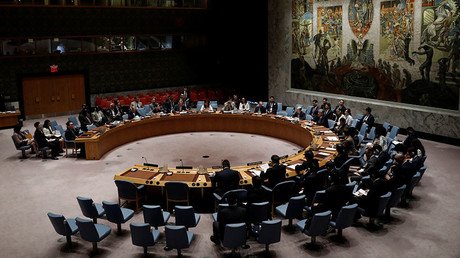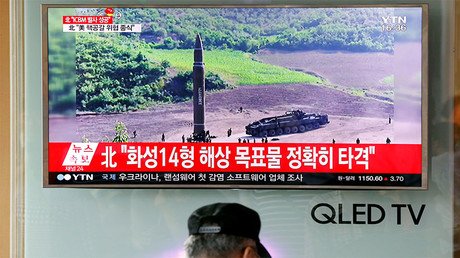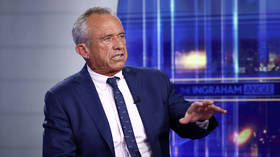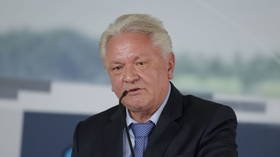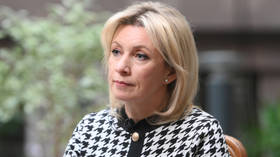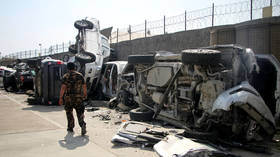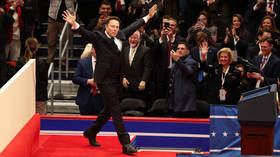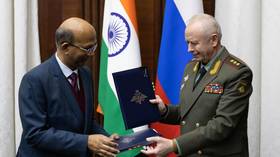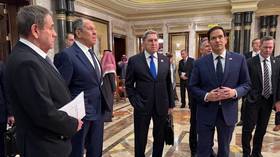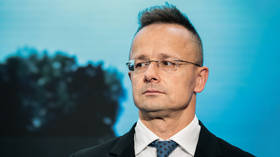Moscow promotes joint Russia-China plan instead of US attempts to ‘strangle’ N. Korea at UNSC
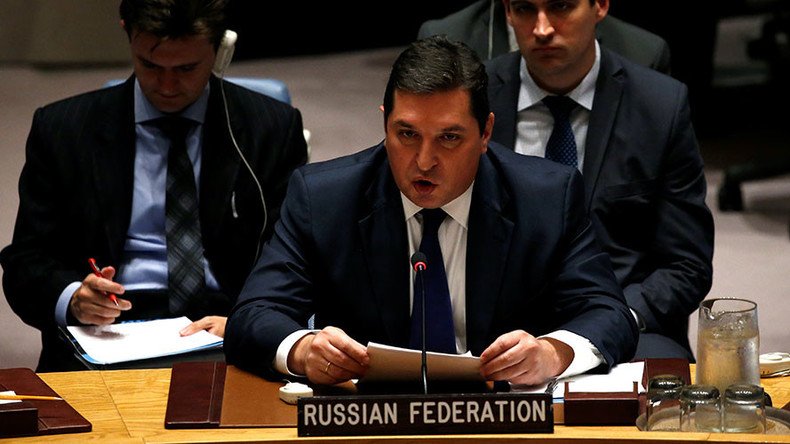
Moscow has dismissed US-led calls at the UN Security Council to introduce new sanctions over Pyongyang’s latest ballistic missile test, calling instead, for more “creative” diplomacy, citing the joint proposal by the Russian and Chinese leaders Tuesday.
Describing the North Korean ballistic missile launch on Tuesday as “dangerous, reckless and irresponsible,” the American Ambassador to the United Nations, Nikki Haley urged the UN Security Council to implement new measures against the Democratic People’s Republic of Korea (DPRK).
The US has vowed to take measures to protect its security and that of its regional allies in case sanctions fail, even if it means using force against the North Korean regime.
“If you see this for what it is, which is North Korea showing its muscle, then you need to stand strong and vote with the international community to strengthen sanctions on North Korea. And if you chose not to, we will go our own path,” Haley said, addressing China and Russia.
“They have no care for Russia or China in this. They have not listened to anything you’ve said. They are not going to listen to anything that you say,” she said.
Taking the floor at the emergency UNSC session in New York, Vladimir Safronkov, Russia’s deputy envoy to the United Nations, spoke out against new sanctions, calling on member states to follow a join Russian-China initiative agreedTuesday, during the Moscow meeting between Russian president Vladimir Putin and his Chinese counterpart, Xi Jinping.
“Sanctions cannot be a cure-all panacea. And this has been demonstrated by history,” Safronkov said in reply to Hailey’s impassioned plea, instead urging the nations to employ “creative diplomacy” to find a political solution to the escalating crisis.
“Any attempts to justify a military solution are inadmissible and will lead to unpredictable consequences for the region. In the same manner, attempts to economically strangle North Korea are equally unacceptable, as millions of North Koreans remain in need of humanitarian aid,” Safronkov stressed.
“Everyone needs to acknowledge that sanctions will not solve the problem. In that manner, we simply rush towards a stalemate,” the Russian diplomat cautioned, underlining, that North Korean security concerns must be taken into account.
#Россия и #Китай настойчиво призвали #КНДР неукоснительно соблюдать положения соответствующих резолюций СБ #ООН
— Russian Mission UN (@RussiaUN) July 5, 2017
📝: https://t.co/DI84dlaLWnpic.twitter.com/hhw76HOH2K
While calling the latest North Korean launch “unacceptable” and in violation of numerous UN resolutions, Safronkov emphasized that both Moscow and Beijing have repeatedly urged Pyongyang to return to the negotiating table and to abide by the Security Council resolutions.
Warning of “a risk of an armed conflict,” Safronkov urged the countries to consider the Sino-Russian proposal, previously drafted by the countries’ foreign ministries and articulated by Putin and Xi.
N.Korea’s nuclear question must be solved through dialogue, not provocations – Russia to UNSC. LIVE: https://t.co/lAJVOK74sQpic.twitter.com/yIJi1i50Nt
— RT (@RT_com) 5 July 2017
“The Russian Federation and the Peoples Republic of China put forth a join initiative, based on Chinese proposed ideas of a 'double freezing' [missile and nuclear activities by the DPRK and large-scale joint exercises by the United States and the Republic of Korea] and 'parallel advancement' for the denuclearization of the Korean Peninsula as well as establishing a peace mechanism on the Peninsula,” the diplomat said.
Moscow’s part of the “phased” plan, Safronkov said, calls on Pyongyang to make a “voluntary political decision” and “declare a moratorium on testing of nuclear explosive devices and ballistic rocket tests.”
Russia, China: N. Korea must freeze nuclear activities, US halt THAAD deployment https://t.co/VNgfldNA8Qpic.twitter.com/LhhjEKRztD
— RT (@RT_com) 5 July 2017
China’s UN ambassador, Liu Jieyi called the joint proposal a “realistic route” in calming Korean tensions, noting that China has always been “strongly opposed to chaos and conflict on the Peninsula.”
But in order for the plan to work, South Korea and the US should “refrain from conducting large-scale military exercises,” the Russian deputy ambassador said. At the same time, the US and N. Korea should begin a dialogue, focused on the “non-use of force,” “peaceful coexistence” and the “renunciation of aggression.”
“We are against the military presence of extra-regional forces in NorthEast Asia, and [the] military buildup under the pretext of countering [the] North Korean ballistic missile threat,” Safronkov said.
Both China and Russia consider the THAAD deployment in South Korea as a major obstacle to solving the Korean crisis.
“The Deployment of TAAD seriously undermines the strategic security interests of regional countries,” the Chinese Ambassador and rotating president of the UNSC said.
The Russian diplomat also stressed that the THAAD deployment in South Korea threatens the “strategic security” of regional nations, including China and Russia, and does not support the “denuclearization” of the Korean Peninsula objective.
US & S. Korea launch tactical missiles to show capabilities to North Korea https://t.co/d794oXKlTgpic.twitter.com/qq7LLcrK1Z
— RT (@RT_com) 5 July 2017
The international community must take collective measures for a peaceful settlement of solution through dialogue without any “preconditions,” Safronkov stressed.
Before the UNSC session, the US military confirmed the North Korean announcement that the DPRK was successful at launching an intercontinental ballistic missile (ICBM).
N. Korea’s 1st ICBM launch shown on state TV (VIDEO) https://t.co/udotcPB3iIpic.twitter.com/kk6QtgWV7A
— RT (@RT_com) 5 July 2017
Just ahead of the meeting, North Korea’s official state news agency reported, that the Hwasong-14 missile, which allegedly flew for a distance of 933 km (580 miles), reaching an altitude of 2,802 km (1,741 miles) at the peak of the 39-minute flight, passed all the technical characteristics and requirements to be deemed an ICBM.
North Korea promises more ‘gift packages for Yankees’ after first ICBM test https://t.co/gsG2878bH4
— RT (@RT_com) 5 July 2017
“The test-launch confirmed the features of the rocket's blast-off from its launching pad and technological features of its guidance and stability system in its active-flight stages and structural system,” KCNA reported Wednesday.
The UN Assistant Secretary-General confirmed the US assessment at the Security Council session.
“According to these parameters, the missile would have a range of roughly 6,700 kilometers if launched on a more typical trajectory making it an intercontinental ballistic missile (ICBM) according to a widely used definition,” the UN official said.
However, the Russian delegation challenged the American, North Korean and other assessments, noting that the Russian Defense Ministry, which tracked the projectile, saying the missile only flew around 535 kilometers, reaching an altitude of 510 kilometers before falling into the Sea of Japan.
“The situation requires thorough clarification and investigation,” Safronkov told the Security Council.
The Russian envoy pointed to the UNSC that the parametric data of the “ballistic target” provided by the Defense Ministry is “in line with technical characteristics of a intermediate ballistic missile.”
